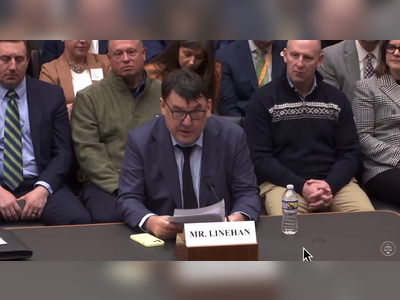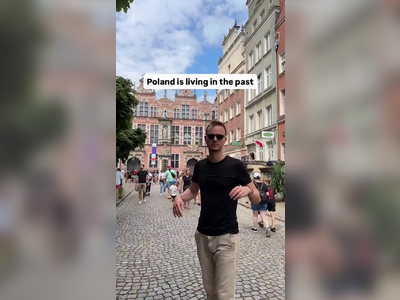Călin Georgescu's Surprising Victory: A Political Transformation in Romania
Concerns arise in European political scene over ultranationalist candidate
In the latest election season in Romania, Călin Georgescu, an ultranationalist candidate, unexpectedly emerged as the winner of the first round, igniting discussions about the nation's potential political direction.
Georgescu's campaign, characterized by nationalist discourse and a pro-Russia orientation, signifies a notable shift in voter sentiment, highlighting a widespread dissatisfaction with the current political climate.
While some see this outcome as evidence of democracy's vitality, allowing people to express their grievances, others caution against the risks of veering towards extremism.
Elena Lasconi, a progressive candidate who achieved a strong second-place result, might provide a counterbalance in Romania's political landscape.
Her upward trajectory underscores a section of the population advocating for liberal policies, reminiscent of political movements in Hungary and Poland.
Beyond Romania, Georgescu's possible rise could affect the country's stance on the Ukraine conflict and its relations within the European Union, recalling historical lessons from nationalist movements in 20th-century Europe.
As the December 8 runoff draws near, the Romanian electorate confronts a critical decision that will influence the nation's identity, alignment, and global standing.
Voters are encouraged to weigh not only the immediate attraction of electoral promises but also the lasting consequences of their decisions, ensuring they heed the past to secure a stable future.
Georgescu's campaign, characterized by nationalist discourse and a pro-Russia orientation, signifies a notable shift in voter sentiment, highlighting a widespread dissatisfaction with the current political climate.
While some see this outcome as evidence of democracy's vitality, allowing people to express their grievances, others caution against the risks of veering towards extremism.
Elena Lasconi, a progressive candidate who achieved a strong second-place result, might provide a counterbalance in Romania's political landscape.
Her upward trajectory underscores a section of the population advocating for liberal policies, reminiscent of political movements in Hungary and Poland.
Beyond Romania, Georgescu's possible rise could affect the country's stance on the Ukraine conflict and its relations within the European Union, recalling historical lessons from nationalist movements in 20th-century Europe.
As the December 8 runoff draws near, the Romanian electorate confronts a critical decision that will influence the nation's identity, alignment, and global standing.
Voters are encouraged to weigh not only the immediate attraction of electoral promises but also the lasting consequences of their decisions, ensuring they heed the past to secure a stable future.
AI Disclaimer: An advanced artificial intelligence (AI) system generated the content of this page on its own. This innovative technology conducts extensive research from a variety of reliable sources, performs rigorous fact-checking and verification, cleans up and balances biased or manipulated content, and presents a minimal factual summary that is just enough yet essential for you to function as an informed and educated citizen. Please keep in mind, however, that this system is an evolving technology, and as a result, the article may contain accidental inaccuracies or errors. We urge you to help us improve our site by reporting any inaccuracies you find using the "Contact Us" link at the bottom of this page. Your helpful feedback helps us improve our system and deliver more precise content. When you find an article of interest here, please look for the full and extensive coverage of this topic in traditional news sources, as they are written by professional journalists that we try to support, not replace. We appreciate your understanding and assistance.











